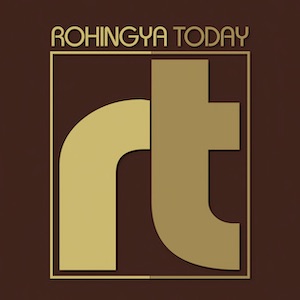
Media Release from Burmese Rohingya Organisation UK
For Immediate Release 12th January 2019
Reuters’ journalists appeal verdict a blow to freedom of expression
The decision by a Myanmar high court to reject the appeal of two Reuters journalists is a blow to freedom of expression and shows how the authorities are determined to bury the truth about atrocities against Rohingya, the Burmese Rohingya Organisation UK (BROUK) said today.
Yesterday, on 11 January 2019, the Yangon High Court ruled that there was not enough evidence to overturn the guilty verdict against Wa Lone and Kyaw Soe Oo, who were sentenced to seven years’ imprisonment in September 2018 for violating the Official Secrets Act.
“This is a disgraceful ruling by the High Court that is a clear indication of how much press freedom is under threat in Myanmar. Wa Lone and Kyaw Soe Oo are courageous journalists who have done nothing but their jobs – they should never have been jailed in the first place, and must be released immediately,” said Tun Khin, President of BROUK.
“Yesterday’s verdict is also another reminder of how far the Myanmar authorities are willing to go to suppress the facts around their own atrocities against the Rohingya population. This is intended to send a clear signal to media everywhere: ‘Don’t mention the genocide’.”
Wa Lone and Kyaw Soe Oo were arrested in December 2017 shortly after receiving a set of official documents as part of their investigation into serious human rights violations against the Rohingya minority in Rakhine State. The Reuters investigation, which was eventually published in February 2018, documented how Myanmar security forces and their proxies had massacred 10 Rohingya men in the village of Inn Din.
Despite restrictions on reporting being relaxed significantly following Myanmar’s transition to quasi-civilian rule in 2011, the space for freedom of expression has shrunk dramatically in recent years, in particular when it comes to military abuses in Rakhine State or other parts of the country.
According to the freedom of expression watchdog Athan, at least 12 journalists faced criminal charges in 2018 as a result of their reporting. Authorities rely on a range of repressive laws – such as the Telecommunications Act, the colonial-era Official Secrets Act or defamation under the Penal Code – to target critical reporting.
Myanmar authorities have also imposed severe restrictions on reporting in Rakhine State, such as Kachin and Shan States, and other parts of the country where security forces are committing violations in conflicts with ethnic armed groups.
Northern Rakhine State has become a virtual information and reporting black hole since August 2017, when the Myanmar security forces launched a “clearance operation” which led to the deaths of thousands of Rohingya and forced hundreds of thousands to flee into Bangladesh.
“Control of information is a key part of the Myanmar authorities’ ongoing genocide against the Rohingya. By placing restrictions on the ability of journalists, human rights investigators and others to access Rakhine State, the military is trying to bury the truth of their own crimes against humanity,” said Tun Khin.
“Myanmar must immediately repeal all repressive laws and allow journalists unfettered access to all parts of the country, including Rakhine State. Only by laying bare the full horror of the Tatmadaw’s crimes can we ensure that they do not happen again.”
For more information, please contact Tun Khin +44 7888714866.








